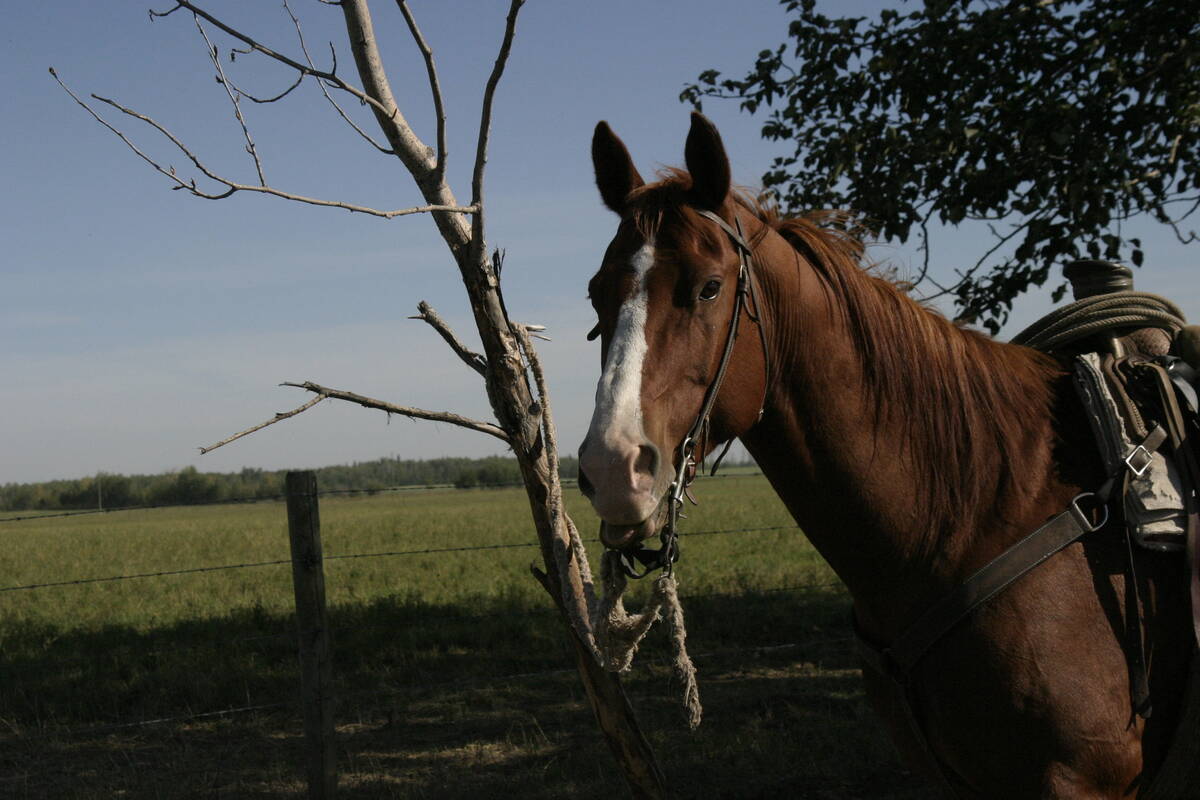TISDALE, Sask. – Emotions ran high at a Saskatchewan Cattlemen’s Association district meeting in Tisdale last week.
“For the last seven years we’ve been running on hope and optimism, and nothing ever changes,” said Lynel Person, who travelled nearly 200 kilometers from Preeceville, Sask., to address the Nov. 3 meeting.
“For me, that hope and optimism has just about run out. Hope and optimism doesn’t pay the bills. Hope and optimism isn’t going to pay for the millions of dollars owed by producers when cash advances come due in the spring.”
Read Also

Horses challenged when asked to be weekend warriors
Horses are creatures of consistency. Their bodies and nervous systems are designed for steady, rhythmic movement, low-intensity grazing and regular social interaction.
Many cattle producers in northeastern Saskatchewan will face feed shortages this winter. Their forage is either flooded, inaccessible or rotting in fields.
“The ground won’t take moisture. It’s just freezing and thawing but it isn’t drying out,” said Derek Denham, who raises cattle near Weekes, Sask.
The flooding caps nearly a decade of hard times for the region’s cattle producers, who are now looking to their association and the federal and provincial governments for help.
“If we don’t get some kind of a cash injection, things are going to get a lot worse by the end of this winter,” Person said.
The SCA was criticized for not doing enough on behalf of producers, who fund the organization with a $1 per head checkoff.
“Why should my check-off money go to an organization that really doesn’t seem to be working for me as a cow-calf producer?” Person said.
SCA chief executive officer Keith Robertson said the Saskatchewan government’s February 2009 announcement of $71 million to the Saskatchewan Cattle and Hog Support Program is an example of how association lobbying benefits producers.
He also said SCA is working to secure $150 per head payments for breeding cows and $40 per acre of flooded forage and pasture for cow-calf operators.
Some SCA representatives echoed their members’ concerns about the glacial pace of government aid.
“We were in Lloydminster this year in the middle of a monsoon to hear the ministers announce drought aid from last year,” said SCA chair Jack Hextall.
Members passed resolutions to harmonize the SCA’s payout requests with those of the Manitoba Livestock Producers’ Association and to urge the SCA to work with the federal and provincial governments to develop a forage insurance program.
Producers said many of them can’t wait until January for the resolutions to reach the SCA’s general meeting in Saskatoon.
“We’re in a crisis here,” Denham said. “January is just prolonging it.”
Producers were urged to contact their MPs and MLAs to make them aware of the situation. Many already have.
While some politicians, such as social services minister June Draude, were commended for their quick responses, others, notably finance minister Ken Krawetz, were singled out for not returning calls .
“We call and get a machine. They don’t return phone calls. It doesn’t leave a good feeling,” said Wayne Paulson, a cattle farmer in Krawetz’s Canora-Pelly riding.
Denham said legislators should expect their phones to keep ringing until they come up with a response to the crisis.
“We’re not going to go away,” he said. “They should know that by now.”














